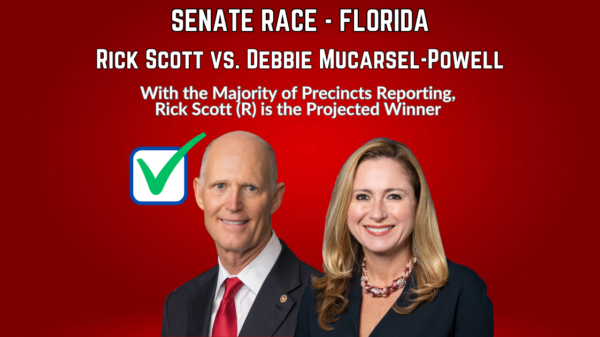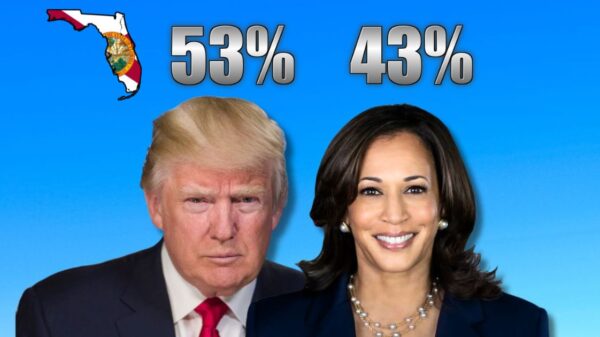This week, U.S. Rep. Francis Rooney, R-Fla., went to bat for the “Defending Our National Marine Sanctuaries from Damaging Chemicals Act,” his proposal to have the U.S. Commerce Department “issue regulations prohibiting the use of sunscreen containing oxybenzone or octinoxate in a National Marine Sanctuary in which coral is present, and for other purposes.”
Back in March, Rooney introduced the bill banning the “human use of oxybenzone and octinoxate near coral reefs in National Marine Sanctuary System including the Great Florida Reef found off the coast of the Florida Keys” with U.S. Rep. Debbie Mucarsel-Powell, D-Fla., as a cosponsor.
Rooney weighed in on his bill when he brought it out.
“These chemicals are killing our coral reefs, which are vital to the marine ecosystem here in Florida and around the world,” Rooney insisted. “Reefs play a major role in preventing shore erosion and protect coastal wetlands. Their preservation is a key component of our tourism-based economy. I introduced the Defending Our National Marine Sanctuaries from Damaging Chemicals Act to protect these critical areas so that they can be enjoyed and studied for generations to come. It is common sense to prevent the application of these chemicals in National Marine Sanctuaries.”
“Healthy coral reefs are essential to a sustainable future, but they are also incredibly fragile,” said Mucarsel-Powell. “Taking small steps, like preventing harmful chemicals from reaching coral reefs, can help ensure future generations can enjoy our beautiful ecosystems and protect tourism. Having worked for the Coral Restoration Foundation, I am proud to continue working to preserve the Florida Reef System in Congress. Defending our precious coral, the species that live in and around them, and the environmental and economic benefits they provide is a necessity, and I’m glad we’re able to work on this on a bipartisan basis.”
“Coral reefs support more species per unit area than any other marine environment, including about 4,000 species of fish, 800 species of hard corals and hundreds of other species,” Rooney’s office noted. “The commercial value of U.S. fisheries from coral reefs is over $100 million. Coral reefs may provide goods and services worth $375 billion each year.”
The bill was sent to the U.S. House Natural Resources Committee which moved it over to the U.S. House Water, Oceans, and Wildlife Subcommittee.
Rooney testified before the subcommittee this week in support of his legislation.
Coral reefs are the foundation of the marine ecosystem,” Rooney said on Tuesday. “They nurture marine life and provide for certain species of fish that rely on them for food. Coral reefs similarly play a major role in preventing coastal erosion and protecting the coastal wetlands. In Florida, they also significantly contribute to a $8.5 billion dollar a year tourism economy. This legislation will protect these critical components of our marine ecosystem and assure that they can be enjoyed and studied for generations to come. There are safe sunscreen options available that do not bleach or harm coral reefs, and the use of those should be encouraged. We must act now to prevent the use of these chemicals in National Marine Sanctuaries.”
The Southwest Florida Republican, who is not running for a third term, pledged to work with U.S. Rep. Jared Huffman, D-Calif., the chairman of the subcommittee, to get the bill through.
In the meantime, Rooney has reeled in four additional cosponsors including U.S. Rep. Alcee Hastings, D-Fla., but there is no companion measure over in the U.S. Senate.
Reach Kevin Derby at [email protected].


















